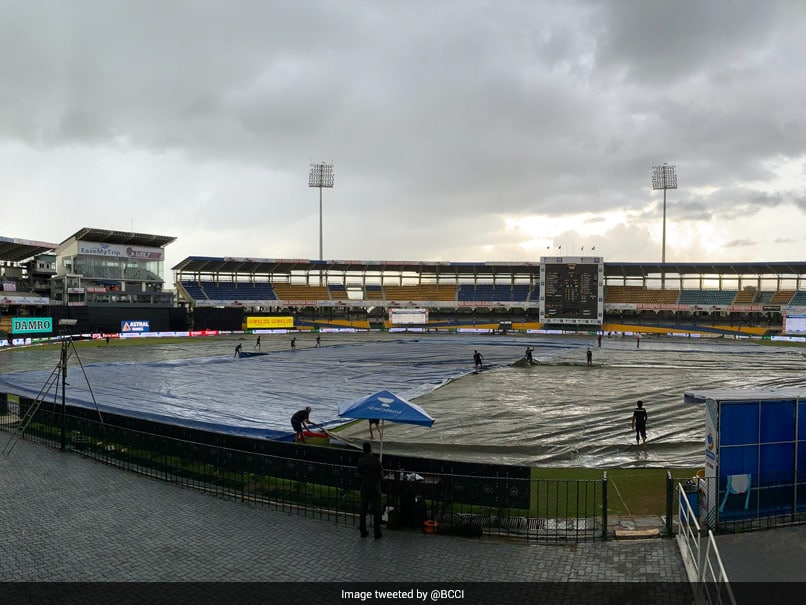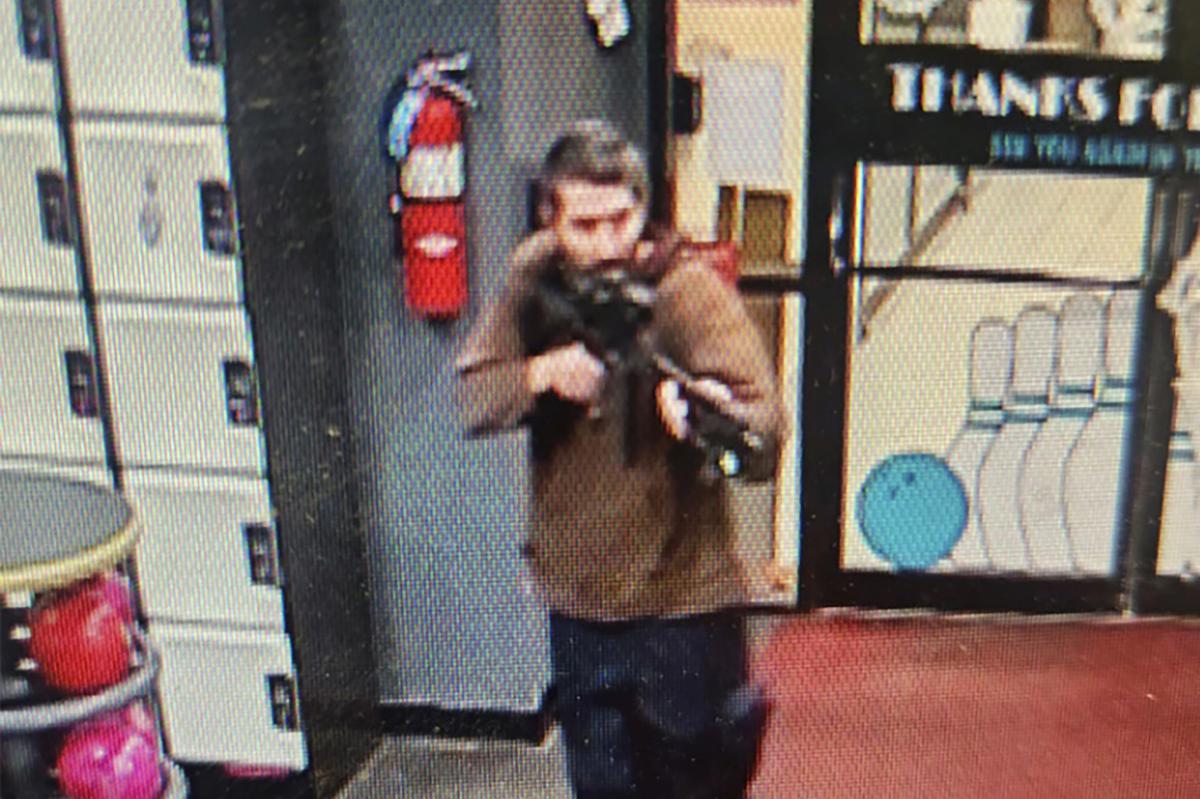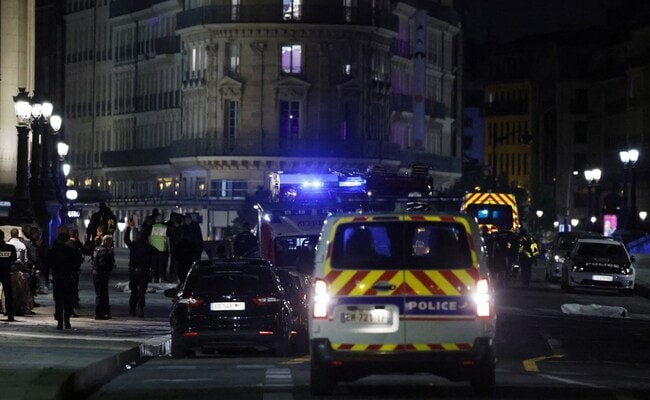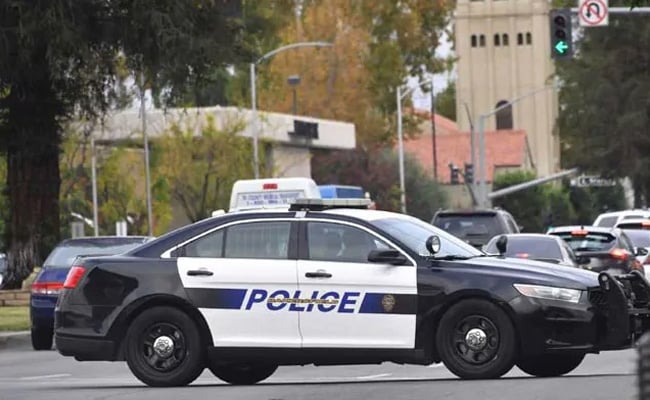Shocked and fearful Maine residents kept to their homes for a second night as hundreds of heavily armed police and FBI agents searched intensely for Robert Card, an Army reservist authorities say fatally shot 18 people at a bowling alley and a bar in the worst mass killing in state history.
Much of Thursday’s (October 26) search focused on a property belonging to one of Card’s relatives in rural Bowdoin, where trucks and vans full of armed agents from the FBI and other agencies eventually surrounded a home. Card and anyone else inside were repeatedly ordered to surrender.
“You need to come outside now with nothing in your hands. Your hands in the air,” police said through a loudspeaker. In most instances when police execute warrants — even for suspects wanted for violent crimes — they move quickly to enter the home.
But hours later, after repeated announcements and a search, authorities moved off and it was still unclear whether Card had ever been at the location, state police said.
Richard Goddard, who lives on the road where the search took place, knows the Card family. Robert Card, who is four years younger, knows the terrain well, Goddard said.
“This is is his stomping ground. He grew up here,” he said. “He knows every ledge to hide behind, every thicket.”
Several homes were being searched and every lead pursued in the hunt for Card, a 40-year-old with firearms instructor training. Authorities said he should be considered armed and dangerous and not approached.
Card is suspected of opening fire with at least one rifle at a bar and a bowling alley Wednesday in Lewiston, which is about 24kms from Bowdoin and is Maine’s second-largest city. The evening shootings killed 18 people and wounded 13 others, with three people still hospitalized in critical condition, authorities said.
In this image from video released by the Androscoggin County Sheriff’s Office, a gunman enters Just-In-Time Recreation in Lewiston, Maine, on October 25, 2023.
| Photo Credit:
AP
The victims of the shootings include Bob Violette, 76, a retiree who was coaching a youth bowling league and was described as devoted, approachable and kind. Auburn City Councillor Leroy Walker told media outlets that his son, Joe, a manager at the bar and grille, died going after the gunman with a butcher knife. Peyton Brewer-Ross was a dedicated pipefitter at Bath Iron Works whose death leaves a gaping void in the lives of his partner, young daughter and friends, members of his union said.
Authorities have not said how many guns were used or how they were obtained.
Schools, doctor’s offices and grocery stores closed and people stayed behind locked doors in cities as far as 80kms from the scenes of the shootings. Maine’s largest city, Portland, closed its public buildings, while Canada Border Services Agency issued an “armed and dangerous” alert to its officers stationed along the U.S. border.
Streets in Lewiston and surrounding communities were virtually deserted late on October 26 night. The occasional truck or police patrol would drive through neighbourhoods dotted with illuminated giant pumpkins and ghosts for Halloween.
Schools in Lewiston were to remain closed Friday, while those in Portland would decide in the morning whether to open. Bates College in Lewiston also cancelled classes Friday and postponed the inauguration of the school’s first Black president.
April Stevens lives in the same neighbourhood where one of the shootings took place. She turned on all her lights overnight and locked her doors. She knew someone killed at the bar and another person injured who needed surgery.
“We’re praying for everyone,” Stevens said through tears.
The attacks stunned a state of only 1.3 million people that has one of the country’s lowest homicide rates: 29 killings in all of 2022.
Maine Gov. Janet Mills promised to do whatever was needed to find Card and to “hold whoever is responsible for this atrocity accountable… and to seek full justice for the victims and their families.”
As authorities searched for Card, details about his recent behaviour emerged. Card underwent a mental health evaluation in mid-July after he began acting erratically while with his reserve regiment, a U.S. official told The Associated Press.
A bulletin sent to police across the country after the attack said Card had been committed to a mental health facility for two weeks this past summer after “hearing voices and threats to shoot up” a military base.
Maine doesn’t require permits to carry guns, and the state has a longstanding culture of gun ownership that is tied to its traditions of hunting and sport shooting. Keeping in mind the strong support for gun rights, lawmakers passed a “yellow flag” law in 2019 that would require police to seek a medical evaluation of anyone believed to be dangerous before then trying to take their guns away. However, critics charged that it was a weaker version of the tougher “red flag” laws that many other states have adopted.
A neighbour, Dave Letarte, said Card’s family let them deer hunt on their property and were kind, although Letarte said he noticed Card appeared to have mental problems for a while.
“People have problems, but you don’t expect them to go on the deep end like that,” Letarte said. “When we saw it on the news last night, I was shocked.”
A telephone number listed for Card in public records was not in service. A woman who answered a phone number for one of Card’s relatives said Thursday afternoon the family was helping the FBI. She didn’t give her name or additional details.
Eight murder warrants were issued for Card after authorities identified eight of the victims, police said. Ten more will likely be issued once the names of the rest of the dead are confirmed, said Maine State Police Col. William Ross.
Three of the 13 people wounded in the shootings were in critical condition and five were hospitalized but stable, Central Maine Medical Center officials said.
The attack started at Just-In-Time Recreation, where a children’s bowling league was taking place, just before 7 p.m. Wednesday.
Patrick Poulin was supposed to be at the bowling centre with his 15-year-old son, who is in a league that was practicing Wednesday. They stayed home, but he estimates there were probably several dozen young bowlers, ages 4 to 18, along with their parents, in the facility. Poulin’s brother was there, he said, and shepherded some of the children outside when the shooting began.
“He’s pretty shook up,” Poulin said on October 26. “And it’s just sinking in today, like, wow, I was very close to being there. And a lot of the people that got hurt, I know.”
Less than 15 minutes later, numerous 911 calls started coming in from Schemengees Bar and Grille a few miles away.
The search for Card covered both land and water. The Coast Guard sent out a patrol boat Thursday morning along the Kennebec River, but after hours of searching, they found “nothing out of the ordinary,” said Chief Petty Officer Ryan Smith, who is in charge of the Coast Guard’s Boothbay Harbor Station.
A car believed to belong to Card had been discovered by a boat launch in the town of Lisbon near the Androscoggin River, which connects to the Kennebec, and Card’s 4.5-metre boat remains unaccounted for, Smith said.
In many past U.S. mass shootings, the suspect was found — whether dead or alive — within minutes. But Card was still on the loose a full day after the shootings.
Lewiston was mostly empty on an unusually warm fall day on October 26. Changeable message signs reminded people to stay behind locked doors.
At Bates College, students stayed in dorms with the blinds closed, said Diana Florence, whose son is a sophomore. She has a daughter who is a senior at the University of North Carolina at Chapel Hill, which was locked down twice last month for a shooting and a man with a gun.
“I could not believe it — that this is happening again. It’s happening to my son after it just happened to my daughter,” she said in a phone interview on October 26.
The shootings mark the 36th mass killing in the United States this year, according to a database maintained by The Associated Press and USA Today in partnership with Northeastern University.













